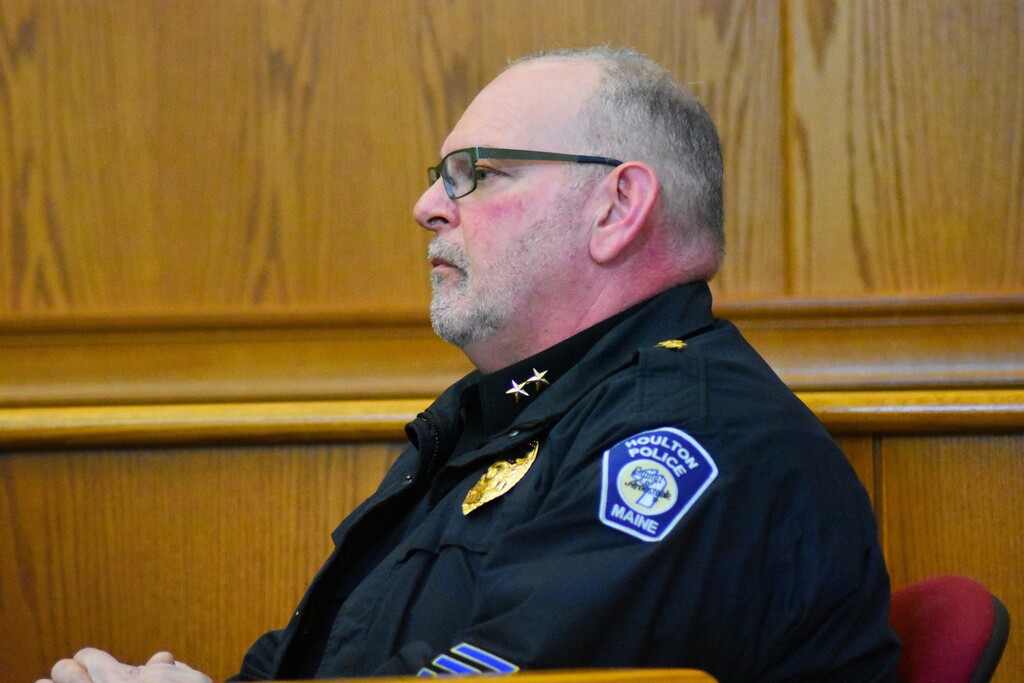
HOULTON, Maine — In an ongoing controversy regarding access to public documents, a Houlton resident again alleges the town failed to supply requested public documents related to the use of facial recognition technology in its townwide camera system.
Craig Harriman has been trying since February to access the surveillance system’s audit logs to determine if the town ever turned on or used features of the cameras including facial recognition technology, biometric recognition or algorithms that analyze behavior, according to an appeal filed in Aroostook County Superior Court last Friday.
Harriman filed what’s known as a Rule 80B appeal, which is a Superior Court filing to challenge actions taken by government agencies. He is seeking to enforce his right to inspect government records under Maine’s Freedom of Access Act.
The town received the appeal on Wednesday via the U.S. Postal Service, according to Town Manager Cameron Clark. Clark referred questions to the town’s attorney, Grady Burns of Portland.
Burns, who is handling the ongoing matter, said the town is aware that an appeal was filed, but as a matter of policy cannot comment on active litigation.
This is Harriman’s second legal action concerning Houlton’s timely release of public documents related to 50-plus Verkada advanced technology surveillance cameras purchased in 2022 with American Rescue Plan Act funds.
In Harriman’s current legal action, he alleges that it has been over 90 days since he filed his February request for access to the audit logs. According to the manufacturer, the audit logs capture device activity including actions taken by each user.
Initially, Harriman and Clark exchanged a handful of emails, which acknowledged the information request and spelled out further actions, but Harriman says in court documents that he did not get to review the requested logs.

In late March, Burns contacted Harriman via email about the time it would take to release the documents and how much the work would cost.
“I have received a set of logs related to your request for that review. The universe of data is voluminous, and there are several categories of information in the logs,” Burns wrote to Harriman, according to the court complaint. “Based on the volume of data, my best estimate is that it will take approximately five hours to review the records, although this is an estimate. I estimate that it will take approximately two additional calendar weeks to provide you with the records.”
Additionally, Burns said the expense to Harriman would be $75, which he then paid to the town clerk on March 31.
Subsequently, Harriman notified Burns that the payment had been made and that the reports he was seeking were simply audit logs not documents containing sensitive information.
“It looks like it just takes a few clicks with the mouse and a report can be generated via a CSV file,” Harriman said to Burns in their exchange.
A CSV is a plain text file that stores tabular data.
Nonetheless, Harriman said in his complaint that he still does not have the requested documents. Burns and the town have not offered a reasonable justification for a failure to comply with FOAA for more than three months, he said.
“The Town of Houlton violated the FOAA by refusing to do so,” Harriman alleges in the court complaint.
During a civil trial in February in Aroostook County Superior Court for Harriman’s first FOAA appeal, the Houlton police chief admitted knowledge of the camera’s ability to filter people on camera through clothing and facial matches.
“Is that a feature that the Houlton Police Communications Department has?” Harriman asked, referring to the cameras’ facial surveillance technology.
“Yes,” Chief Tim DeLuca said when testifying.
“Do any of the other cameras purchased with the American Rescue Plan Act fund use any type of machine learning, artificial intelligence, any type of software features that collect or gather data by facial recognition?” Harriman asked.
“Yes,” DeLuca said.
According to Harriman, DeLuca’s testimony prompted his request to access the audit logs to see when facial recognition was used.
Maine law prohibits public officials or departments from obtaining, retaining, possessing or accessing a facial surveillance system or information derived from one unless the use falls into one of a few exceptions.
Those exceptions include when the footage is required to investigate a serious crime, to help identify deceased individuals or to help locate a missing or endangered person. And even in those cases, depending on the case or crime, the municipality must first request permission from the Bureau of Motor Vehicles or the Maine State Police to access the data.
Clark was not yet the town manager when Harriman first sought access to documents in 2024. After Clark was appointed to the town manager role on an interim basis — but before he took the job permanently — he decided to unplug the controversial surveillance system in February until the town could explore the legalities of its use.
“I have made the decision to temporarily deactivate the Town of Houlton’s camera system,” Clark said at the time. “During this period, Town of Houlton staff will collaborate with its vendors to thoroughly assess and ensure that the camera system currently owned and operated by the town complies with all applicable laws and regulations.”
Harriman, who represented himself at the February trial, did not prevail in his initial appeal against the town.
Following over an hour of testimony in that trial, District Court Judge Robert Langner reviewed the evidence before determining that because most of the documents were eventually provided to Harriman, the town did not violate the state’s FOAA laws.
However, Langner noted that the town did not initially respond to Harriman’s written queries for the records.
“I do not think that the town ever meant to deny Mr. Harriman access to any particular records that he requested,” Langner said. “They were not hiding the ball, so to speak.”
In this current action, Harriman is seeking access to the requested documents, payment of court costs and labor and other relief as determined by the court.
On Wednesday, Harriman said that he is waiting for the court to set a scheduling hearing date.







